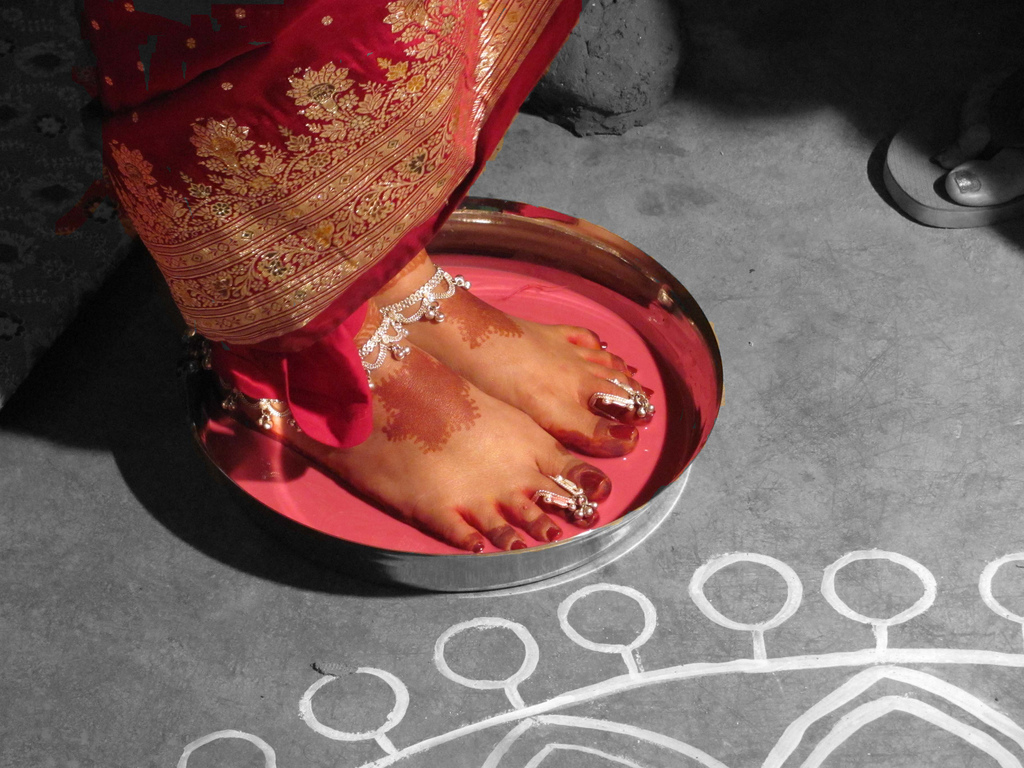Family Stopping You From Working After Marriage? A Lawyer Shares What You Can Do!
Choose the life you want. The law will be there to support you. But the strength lies in you.

As a lawyer, I’ve been approached by many women for advice on balancing life and career after marriage. They ask me several questions, “Is working after marriage illegal? How am I supposed to manage everything alone? Isn’t this inhuman?”
They even tell me, “My career was my passion once, now, it has become a punishment. Is there any law for killing a person’s dreams?”
Regardless of caste or religion, these concerns are felt by women even in an evolving Indian society. Many women born in this era, looking to have a career and also marrying into a family, face this reality.
This concept is commonly known as “Marriage Bar”.

Often, the husband’s parents have other ways to voice their objections. They tell the newly-married woman that they have enough to live and sustain in luxury, and wouldn’t want her to go out of home in search of work.
This has forced women on the verge of marriage to insist that they continue to work after marriage, should they choose to.
Dear women, there is no law stopping you from working or staying at home, as you please. But laws advocate women as part of the working culture.
The 2013 Companies Act, for instance. It prescribes women as directors of companies, and protects them from any abuse at the workplace.
Despite these laws, if you are forced to stay at home and stopped from pursuing your career, you can file for divorce on the following grounds:
1. Cruelty: Which includes mental cruelty, apart from physical. S 13(1) (a) of Marriage Laws (Amendment) Act 1976 mentions this as any conduct that inflicts mental pain and suffering as would make it not possible to live with the partner. It is important to prove “Mental Pain and Suffering”. A female who has a career and is passionate about it can take the help of this clause.
2. Restraining the right of freedom to work
3. The National Commission for Women Act, 1990: The National Commission for Women (NCW) is a statutory body of the Government of India, established in January 1992. The Act aims to improve the status of women and their economic empowerment.
In many cases where the woman is “allowed” to work, she is met with the following responses, in words or actions.

a) Words: “Oh yes, she can choose to do whatever she wants. She can work too. We don’t need her money.”
Actions: Money taken from her for regular “ghar kharch” and not letting her spend it the way she wants to.
b) Actions: Keeping a check if she is sending money to her parents’ house or using it herself.
c) Words: “You have some responsibilities towards the house. Join me in the kitchen and cook dinner at least. Help maintain the house.”
This causes her to neglect her health, and prioritise the needs of the home and others above herself and her work.
d) Words: “A woman may work, but not at the cost of household and familial responsibilities.”
Statements like these are made with the intent of making the woman feel selfish and inducing guilt.
e) Words: “A woman must ensure that she performs well as a bahu (daughter-in-law), even if she does not perform well professionally.”
This comment attempts to dehumanise the woman and make her believe that her self-worth comes from how much she can give to her family, and not from her accomplishments.
Also Read: Triple Talaq to Reservations: 5 Bills That Will Give Women The Backing They Need
Women experience burnout because of not being able to manage everything. The questions we must ask are these–Did she get married to spend all her time cooking? What about her passion for work? Weren’t the same things managed in the family before she got married? Then why are there pressures and additional responsibilities on her alone after the marriage?
In earlier times, women were not encouraged to work or study, so the focus was on teaching them household chores and arranging their marriage at an early age. Unfortunately, Indian society got used to this scenario.
But now, women are educated. There is a perceptible shift from the old culture to a new, balanced, growth-oriented approach. And as with any sort of change, there is active resistance. But, this needs to go. We need to accept change and alter the way we think.
Men and their families must understand that women can choose to work and pursue careers of their choice and that the duties of the household belong to them as much as to the women.

As for women, you need to decide for yourself.
You May Also Like: Mumbai Couple Reverses Societal Roles, Proves Marriage Is All About Equal Partnership!
I did. I took a stand and prioritised my career. I attended to my family when I returned from work. Initially, I faced a tough time, but I did not change or neglect my passion. Of course, I had days when I was late in reaching home from work, as a result of which, I faced problems. But I maintained my strength, and explained things to the family. Gradually, they understood and supported me.
Choose the life you want. The law will be there to support you. But the strength lies in you.
Like this story? Or have something to share?
Write to us: [email protected]
Connect with us on Facebook and Twitter.
If you found our stories insightful, informative, or even just enjoyable, we invite you to consider making a voluntary payment to support the work we do at The Better India. Your contribution helps us continue producing quality content that educates, inspires, and drives positive change.
Choose one of the payment options below for your contribution-
By paying for the stories you value, you directly contribute to sustaining our efforts focused on making a difference in the world. Together, let’s ensure that impactful stories continue to be told and shared, enriching lives and communities alike.
Thank you for your support. Here are some frequently asked questions you might find helpful to know why you are contributing?


This story made me
-
97
-
121
-
89
-
167











